Tosh Berman's Blog, page 231
April 26, 2014
April 26, 2014
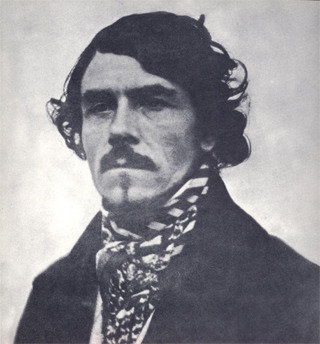
April 26, 2014
I woke up this morning with a thought “don’t think but look!” It startled me at first, but as I slowly gained conscious by focusing my gaze towards the bedroom window, which at times, and really depends on the time of the day, and if there is sunshine, looks like the painting by Eugène Delacroix, specifically his “Basket of Flowers.” I drained every thought from my head and just focused on the flowers that are on the window sill. Even if I have an appointment in the morning, I always take my time in stepping out of bed. I don’t even stretch, or make a noise, but just noticing the flowers and how that petals react to the breeze or wind outside. Also I have a large tree outside the window, which also causes a distinctive degree of lighting that makes shadows against the ceiling, as I lay on my back. It is just my version of going to the cinema, but without the narration nonsense.
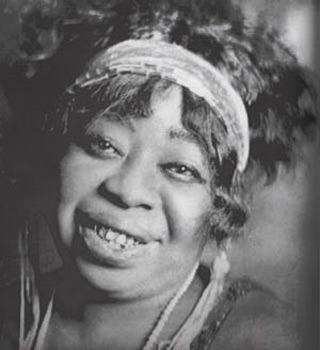
By my bedside I have a 1950s era Califone 42V, Promenade II direct drive portable turntable and I only play one album on this, and that is a recording by Ma Rainy, the mother of the blues. In the 20s, she made over 100 recordings, which for me, define that era. Some feel the blues or jazz is only good for evening life, but I totally disagree with that theory. The ability to kick life at its shin, is a good way to begin the day. I prepare breakfast, and rarely do I change the food or procedure. I only like to eat English muffins with peanut butter from Whole Foods Markert and sugarless jam of assorted flavors. I tend to have at the very least, ten different jars of jam in my 1950 Frigidaire refrigerator. I like to sit in the kitchen on a stool by a portable card table, facing the window above the sink. Due to the building across the way, I don’t get direct sunlight in the kitchen, but that’s perfectly OK with me. I only like the sunlight in my bedroom.
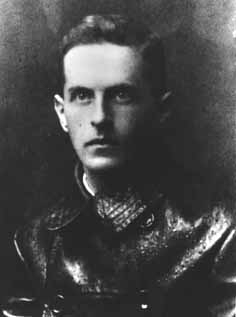
I only take baths, and never a shower. What I like to do is sponged my body before I enter the bathtub. The water has to be the correct temperature of 101 F or 38 C, considering that the average body temp of a man is 98.6 F. Once I put in a few drops of avocado oil in the water, I step in. This is where I either do my meditation, besides my mental bedroom window procedure, or read a book. What I strongly recommend is “Culture and Value” by Ludwig Wittgenstein (translated by Peter Winch). It’s a fantastic collection of remarks that are beautifully written. One quote that comes to mind is “I never more than half succeed in expressing what I want to express. Actually not as much as that, but by no more than a tenth. That is still worth something. Often my writing is nothing but ‘stuttering.’ “ I often reflect on what he is saying here. Well, only in the bathtub. Nevertheless I often feel that my thoughts are not possible to express verbally, and often I find this frustrating. I spent a great deal of time in front of a blank notebook, just trying to fill the blank pages with thoughts that can’t be expressed on a page.
I don’t read French and I have never read A. E. van Vogt, but I do have a copy of his novel “Le Monde des Å” (The World of Null-A) in French, which is translated by Boris Vian. Me, being such a hardcore Vian fan, I needed to not only own the book, but I often try to read it, even though I can’t even pronounce French words. But I like the thought of reading this book in French. I have heard that the French sub-culture youth group Zazous, used to carry English language books to look more cosmopolitan, and that is something that I totally concur with. Not only that, but I feel text can be not only read, but also felt in an emotional sense or even on another dimension. When you get down to it, I only want to face the world in my ability to see what I want to look at, but also, and if possible, through vocabulary.
Published on April 26, 2014 10:05
April 25, 2014
"Sparks-Tastic" reviewed in The Flaneur website

A fantastic review of my book "Sparks-Tastic" by Susan Adele Wiggins on "The Flaneur" website.
Read it here: http://flaneur.me.uk/04/book-review-sparks-tastic-twenty-one-nights-with-sparks-in-london/
Published on April 25, 2014 11:59
April 25, 2014
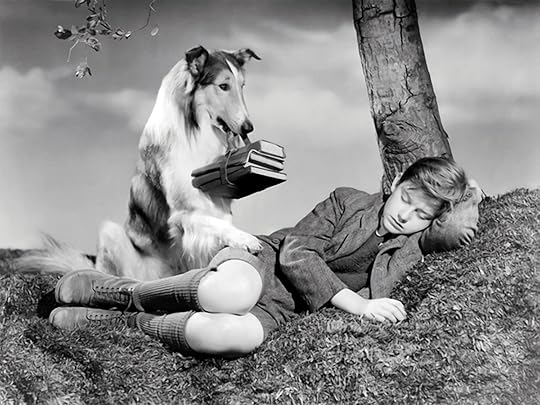
April 25, 2014
In m lifetime, I only lived with two dogs: Rover and Pi. Rover was a mutt and Pi was part collie and coyote. Pi moved in with us because her family was moving out of Topanga, and once moved, she found herself back home at our house. We adopted her or just kept Pi, because she was always hanging out with Rover. My relationship with dogs is very laissez-faire, and I rarely ever think about them either as pets or objects in front of me. All I know is Rover and Pi lived with me, and they liked their stomachs scratched and petted.
I remember watching “Lassie” on our black and white TV, and Rover was totally intrigued by the show one night. Especially when Lassie barked, or made a sound. He would sit in front of the set, cock his head towards the left with his ear up. Eventually he would walk around the TV set to determine what was happening in the back of the set. Rover was just thinking logically if Lassie was actually in the TV set, which makes perfect sense to me.
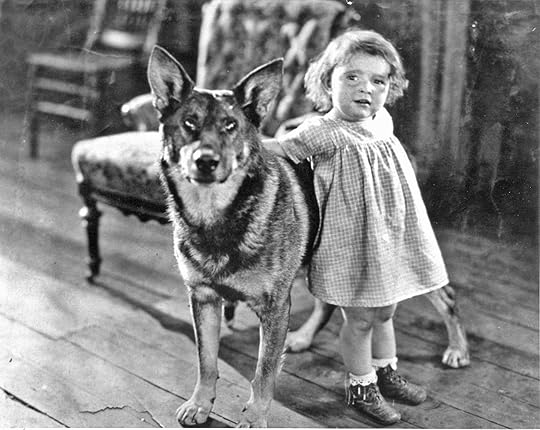
As a boy, I totally identify with Timmy on “Lassie” and Rusty on “Rin Tin-Tin.” So when I was with Rover and Pi, I didn’t really think about the dogs, but instead I projected myself as the boy who is surrounded by his dog, who also appears to have been tuned in to my needs and concerns. Getting love from a dog is without a doubt one of the greatest love relationships on this planet. There is the famous story of Hacikō, the akita dog who would go with his owner, Hidesburō Ueno, a teacher, to Shibuya station in Tokyo, and would come back to see him there when he arrived from his work. One day, the teacher dies at work and of course never returns - but Hacikō without fail, would wait at the meeting spot in the Shibuya station every day at the same time. Hacikō waited for seven years till death came and took him away.
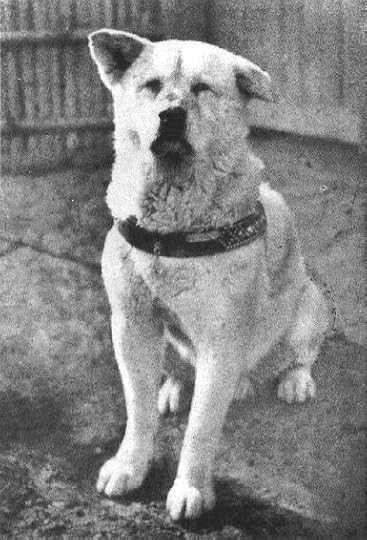
The Japanese media picked up the story of Hacikō, and eventually it became almost an urban myth about the loyal dog waiting for his master or owner. Except this was all true. Hacikō died on March 8, 1938, where his body was found on the streets of Shibuya. The dog had terminal cancer and a filaria infection (worms). They also found four yakitori skewers in his stomach, but that didn’t cause his death. Hachikō’s remains are stuffed and mounted and kept at the National Science Museum in Ueno, Tokyo. His burial monument is in the Aoyama cemetery. But the people’s monument is at the Shibuya station, exactly where Hachikō waited for his master. There is a statue in honor of the dog, and it is probably one of the best-known locations in Tokyo.
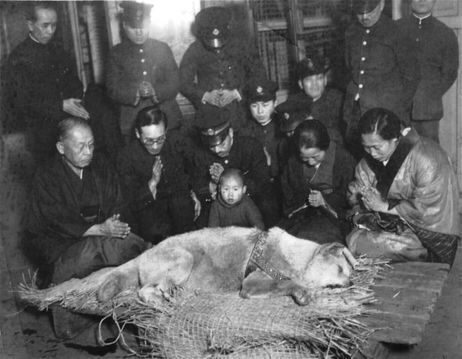
I will never forget the night Rover died. He was for sure feeling his age, and I remember the night he insisted ongoing outside. I opened the door for him and that was the last time I saw Rover. But as I was falling asleep on the couch in the living room, I had a waking dream of Rover in front of my face, barking wildly. I woke up and of course he wasn’t there, but I never did see my dog again. Also I never had the urge to get another dog or to live with a dog. Rover and Pi were dogs who lived with me at a specific time, and one can’t repeat its past. I had to move on.
Published on April 25, 2014 10:46
April 24, 2014
April 24, 2014

April 24, 2014
Most people associate me with stripes. The funny thing is the fact that they never look past the visual image to see who I really am. Or is there even a ‘real’ me beyond the stripes. I just try to live my life within the boundaries of stripes, because in a sense it is a world within borders. There is an outside and then there is an inside. I stay inside as much as possible. But I don’t mind sticking my head out between the strips to find out how the world is reacting to whatever that concerns the dear old planet. In Japan, everyone tells me in English that they think of me wearing only ‘border’ t-shirts. That is their way of describing stripes, which is totally different how I see the stripe.
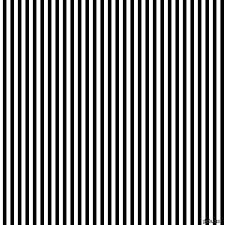
I see the strip as a direction or a road. Not necessary to separate me from another place. But what I do like about stripes is that they are usually the same width throughout its length, and this offers me a sense of peace. I once drew a line, as straight as possible, throughout my house. For instance, right by my bed, the stripe starts, and it leads to the toilet, and then once I get out of the bathroom, I have various stripes to lead me to other parts of the house. I do reach the “fork on the road, ” where I have to make a decision on which line to follow. The thing is to obtain restrictions like that actually gives me guidance and of course direction.

Not surprisingly, I do have a thing for Jean Paul Gaultier, and it mostly deals with his obsession with breton stripes. In 1858, was the first time that the French navy wore striped knitted shirts. The original design featured 21 stripes, one for each of Napolean’s military victories. The Saint James clothing company made the Binic ll sweater, first introduced in 1889 in Normandy. Ever since then it has become the symbol of French design and style. But it also has its rebellious image, just think of Lee Marvin’s character wearing a breton stripped t-shirt in “The Wild One.” In my bathroom I had a collection of Gaultier perfume bottles with the torso with the strip shirt. I liked the weight of the bottles. It felt serious in my hands.
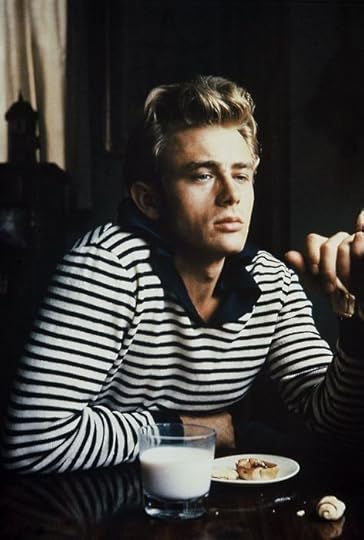
It has been noted that I don’t leave the house unless I’m wearing some stripes somewhere on my body. Without them, I feel not fully me. Again, it is the line that goes in a certain direction that leads me to and from home.
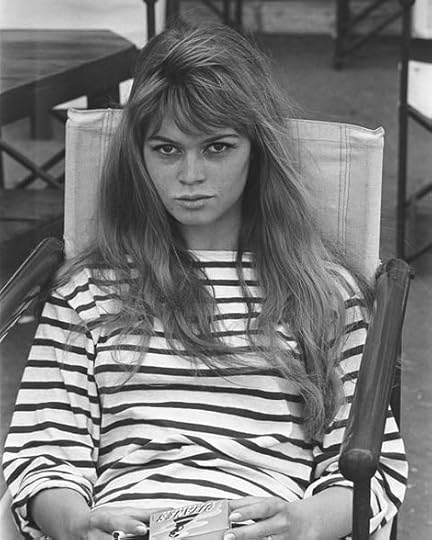
Published on April 24, 2014 10:56
April 23, 2014
Magazine : Live at Rockpalast 1980 ( Full )
Due to Momus' tribute to everything that's Howard Devoto, I have been listening to that world recently. A wonderful visit I might add.
Published on April 23, 2014 21:34
April 23, 2014
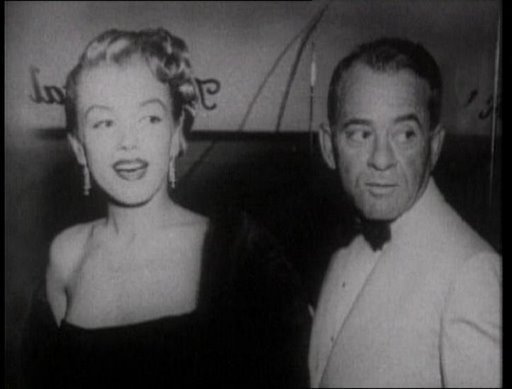
April 23, 2014
As I learned from Johnny Hyde, never fall in love with your client. They are many things that make a successful client, but one thing they are not, is an object of love from the agent’s point-of-view. To be successful, you have to see your talent as an object, and know what that subject is worth the open or even closed market. Johnny made the mistake in believing in his star client, when instead, he should have admired her from afar, like her fans. He would gain a better understanding of her appeal and the needs of her fan base.
What is it about guys who fall for their meal ticket? They now come to you because they insist on vision and security of some sort. If you cross that line, you become powerless in front of their eyes. To be honest, it makes me sick to my stomach to see it happen to my type of guy in my type of occupation. Once I see an artist at work, it becomes a narrative right in front of me. There is a beginning, a middle and of course an ending. The thing is to be prepared for that crash in the third act, and make sure your client is comfortable when that time comes.

I took my client to a nice bar for a intimate drink and to discuss business. Roy Orbison’s “Only The Lonely” is playing softly on the jukebox, and I told her that we need to make some drastic, but positive, plans. There was a war photographer who freelances by the name of Lee. She drinks like a fish and she had the guts to take a bath in Hitler’s tub right after the liberation of Munich. I knew Lee for a long time, we were pals in Paris before the war, and at the time she was living and working together with another photographer, whose name doesn’t come to the front of my head at this moment. But she did fashion, and she’s talented with the lens.
I had a script with me that is based on Shakespeare’s “Richard the Third.” The movie was going to be original by updating the narrative to contemporary times. Yet, keep the Shakespeare language intact. I didn’t know if this would work or not, but my client did Shakespeare in her school, so I figure this would be a natural for her. As I told her more about this project, she seemed to get less interested and was fidgety, and not drinking any of her drink as well. She then asked if I would take her to an address in South Pasadena. She just wanted to show me something there. The address that she gave me was on 1071 South Orange Grove Avenue.
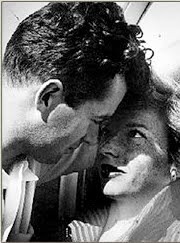
When we arrived it was dark already, and it seemed to be a charming sleepy neighborhood in South Pasadena. She indicated to me that there used to be a house here, not this one, but another one, that was destroyed by an explosion. The house was the property of a scientist who worked for the Jet Propulsion Laboratory, and was known to be as an explosives expert. He and his wife were getting ready to move to Mexico to work and live, but he accidentally dropped some chemicals, which in turn, caused an explosion and therefore his death. Also both of them were under the tutelage of Aleister Crowley. She mentioned this all to me, and just wanted to bring this story onto the big screen. Me, being me, tried to link a Shakespeare theme or narration as she told me this very minimal but nevertheless interesting Mise-en-scéne. At least that’s the way I looked at it. We both sat in the car and stared at the property, not saying anything to each other. I had the motor on, and over the radio we listened to Sergei Prokofiev’s “Romeo and Juliet, Op. 64., Suite No. 1, Op.64c: Monagues and Capulets.”
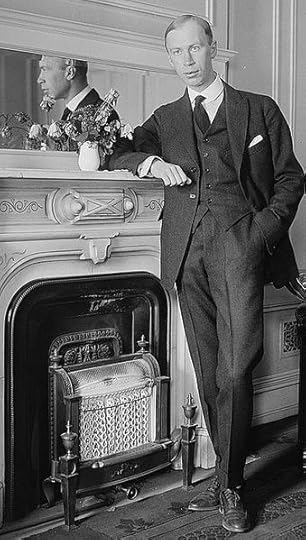
Published on April 23, 2014 09:51
April 22, 2014
"The Adventures of Jodelle" by Guy Peelaert & Pierre Bartier

In one word: Superb. This is not only an over-sized version of the comic strip "The Adventures of Jodelle," but also a mini-retrospective on the works of Guy Peelaert, who among other things, worked with Serge Gainsbourg, William Klein, and was totally in tuned with the American pop art scene of the 1960s. Which by the way, the comic strip reads like a manifesto of the times - and to this day, the graphics are at least as fresh as youth going for their first kiss. It's a remarkable book. The first part is the comic strip by him and gag writer Pierre Bartier - and then one gets more detailed information about his works - such as the comic strips, set design, costume design and film. So in other words, this is more of an art book than a graphic novel, or the graphic novel with something extra. A lot of extra! It is almost like a classic DVD set from Critierion, where you get the making of the film, but also sees the beginning of the drawings, the ideas as they are being worked out.
I first heard of Guy Peelaert from his "Rock Dreams" book that he did with the great Nik Cohn, in the mid-1970s. His comic strip work is totally different from the Rock Dreams art, but both works are iconic and they both share an awareness of culture of its time and past. This book is very much an essential object to own - especially if you are interested in European 1960s pop world as well as exceptional graphic design work. A beautiful book!
 ISBN: 978-1606995303
ISBN: 978-1606995303
Published on April 22, 2014 15:52
April 22, 2014
April 22, 2014
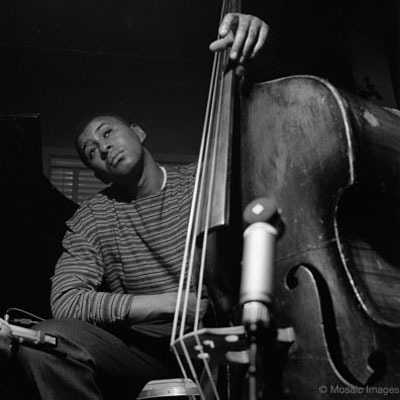
April 22, 2014
Yesterday I wandered around Mono Records and purchased a Paul Chambers album “Whims of Chambers” and a Charles Mingus’ “Mingus Ah Um.” I found myself in the mood to hear bass, so it was the perfect moment at a record store. I also found this old recording by the violinist Yehudi Menuhin, and Benjamin Britten playing piano for the surviving inmates of the Bergen-Belsen concentration camp after its liberation in April 1945. The recording is rough, but a very intense performance, and of course it came to mind that as a child, Menuhin lived with the Boris Vian family somewhere in the French countryside, during the depression that was hitting Europe at the time. Also I knew the name of Britten, but never heard his music till yesterday. Very sad, yet majestic.
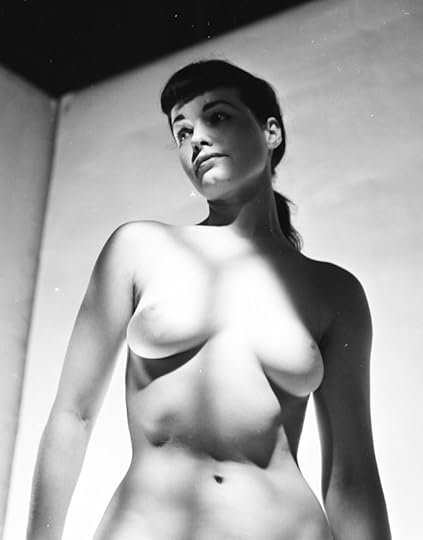
With the new music around me, I am struggling with a book I am writing, regarding Bette Page’s life after being used as a model. It struck me that perhaps I’m not the right man to write such an intense life as Bette’s. It is not the bondage images of her that I find attractive, but just her nude model shots that express a certain mood, and as I look at this image now, it is nice to have a soundtrack by Paul Chambers, whose bass playing skirts around the melody, and I feel I’m doing the same thing with Bette.
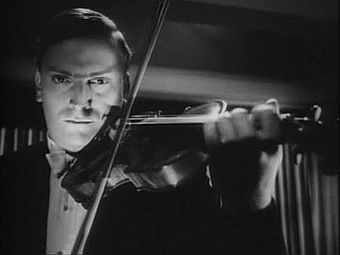
As I get older I realize I have a strong melancholy attitude towards my life, and at times, I try not to think of it. I focus on music or even literature, but of course, and with me, those two mediums are just a window to my soul. One of the reasons why I like jazz so much is due to the foundation there, and the musician plays with the landscape to make it suitable for their temperament or pleasure. I often hear a piece of music in my head, and I slowly eliminate certain instruments, where eventually I have just the skeleton of the melody that’s left over.
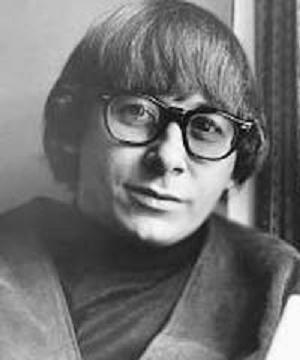
Jack Nitzsche’s great score to “One Flew Over the Cuckoo’s Nest” stays in my mind as the perfect arrangement and the delicacy of the glass harp on the main theme is even more heartbreaking than the film. I remember the grin on Jack Nicholson’s face, but nothing else in the film, except for the soundtrack, which remained with me for some reason. I often find myself drifting into that gray cloud, and I’m watching down, and I think “surely there must be a better place.”

April 22, 2014
Yesterday I wandered around Mono Records and purchased a Paul Chambers album “Whims of Chambers” and a Charles Mingus’ “Mingus Ah Um.” I found myself in the mood to hear bass, so it was the perfect moment at a record store. I also found this old recording by the violinist Yehudi Menuhin, and Benjamin Britten playing piano for the surviving inmates of the Bergen-Belsen concentration camp after its liberation in April 1945. The recording is rough, but a very intense performance, and of course it came to mind that as a child, Menuhin lived with the Boris Vian family somewhere in the French countryside, during the depression that was hitting Europe at the time. Also I knew the name of Britten, but never heard his music till yesterday. Very sad, yet majestic.

With the new music around me, I am struggling with a book I am writing, regarding Bette Page’s life after being used as a model. It struck me that perhaps I’m not the right man to write such an intense life as Bette’s. It is not the bondage images of her that I find attractive, but just her nude model shots that express a certain mood, and as I look at this image now, it is nice to have a soundtrack by Paul Chambers, whose bass playing skirts around the melody, and I feel I’m doing the same thing with Bette.

As I get older I realize I have a strong melancholy attitude towards my life, and at times, I try not to think of it. I focus on music or even literature, but of course, and with me, those two mediums are just a window to my soul. One of the reasons why I like jazz so much is due to the foundation there, and the musician plays with the landscape to make it suitable for their temperament or pleasure. I often hear a piece of music in my head, and I slowly eliminate certain instruments, where eventually I have just the skeleton of the melody that’s left over.

Jack Nitzsche’s great score to “One Flew Over the Cuckoo’s Nest” stays in my mind as the perfect arrangement and the delicacy of the glass harp on the main theme is even more heartbreaking than the film. I remember the grin on Jack Nicholson’s face, but nothing else in the film, except for the soundtrack, which remained with me for some reason. I often find myself drifting into that gray cloud, and I’m watching down, and I think “surely there must be a better place.”
Published on April 22, 2014 13:56
April 21, 2014
April 21, 2014

April 21, 2014
Not that long ago I went to Loch Ness to hopefully see the Loch Ness monster or known in that area as “Nessie.” I took a boat out in the middle of the night and I was by myself. I was undergoing a depression, with respect to a novel I was writing, that I couldn’t finish for some reason called “Lascar: A Story You Must Forget.” I thought it might be a nice idea if I just, without thinking, take the boat out and maybe not return. I didn’t want to drown, but I was hoping that I would be killed by the monster that was reportedly in the deep water. I couldn’t see anything, but the reflection of the stars on that clear night on the water. The beauty of being in such an environment is the absolute silence of the water. Time-to-time, I would put my fingers in the water and slowly dragged them across and onto my boat. I think I was hoping to be able to attract the attention of whatever was down there, but nothing happened, and the silence that came afterwards was like the big hole I was falling into due to my depression.
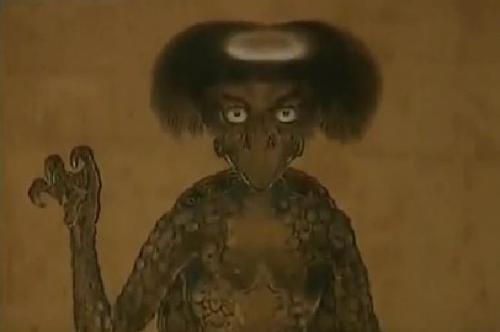
The only other time I have been made aware of a water creature was the Kappa, which is a Japanese myth (or they say) where he lived in the once existing river that ran through Tokyo. I went by the district many times, and I saw an image of the Kappa that deeply affected my psyche. Basically it is a warning to children not to mess with the dangers that are lurking in the waters. It is likely to be for that reason why I don’t or cannot swim. I have a deep subconscious fear of water being contained in large areas - which can mean to be anything from a lake, like Loch Ness, to a city owned swimming pool.
Throughout my life I had the fear of being dragged down by some creature of the deep, and the Loch Ness Monster has been an obsession of mine for many years now. The Kappa was known to trick children to come to the water, and then eventually they would drown. In most cases, these are just children playing too close to a body of water and eventually getting carried away by the water’s currents. But the narrative is very much the same in that a Kappa approaches a child and entices them to come into the water with them.

Now that I am grown up I can see the Kappa as a form of depression, or a body or presence that one can say ‘Ah, you’re the reason for so and so.” The Loch Ness monster may or may not be that type of phenomenon, yet as I drift aimlessly on that water, the only melody that came to my head was an old traditional country tune by the Louvin Brothers called “In The Pines,” which seemed to fit perfectly on this forlorn boat going nowhere.
Published on April 21, 2014 12:31
April 20, 2014
"A Man Called Destruction: The Life and Music of Alex Chilton" by Holly George-Warren

I have not previously met a person who didn't like something by Alex Chilton. He's a cult artist by definition, but he is without a doubt a major work who made priceless pieces of treasure throughout his long career in music making. Why he didn't play the Greek Theater or the Olympia or Albert Hall on a regular basis is not his fault, but it was the 'general' audience that was asleep at the wheel, or using their extra funds foolishly by buying 'that' other record. At this point and time, everyone 'now' knows that Big Star are essential recordings as well as his long and complicated solo career. And of course, The Box Tops, you can't forget that!
The story of Alex is really the story of the South, and the southern aesthetic in how it played to the rest of the world, as well as the influences that touched the region that Chilton came from. In other words, it's a Cecil DeMille production, but in reality it was directed by Sam Fuller. Chilton and Big Star are blessed with some exceptional books. Rob Jovanovic's biography on Big Star and Bruce Eaton's focus on Big Star's Radio City are excellent titles. So is this biography by Holly George-Warren, which is well-researched and well-rounded view of this unique figure. "A Man Called Destruction" (a catchy title, but I feel there is nothing tragic or destructive about Alex, compared to.... Chet Baker or ....etc.) covers all the bases and she, like the other writers, has a feel on Alex, his music, and his world. The thing is Alex is just one character in this fascinating story - the whole creative and boho culture of Memphis is also part of this story.
I always felt that Alex's genius lies in not only in his music, but in his culture as well. What you get is black American culture, Elvis culture, and William Eggleston culture as well. It's an insane world, but one that is totally manageable, but it does have its tragic side as well. I got the feeling from reading this book and the others that he really felt the death of his parents, Chris Bell, and his brothers - he didn't talk about it, but the silence is pretty loud. Excellent biography.
Published on April 20, 2014 20:21



